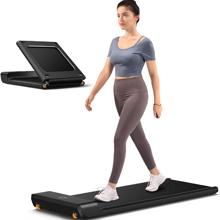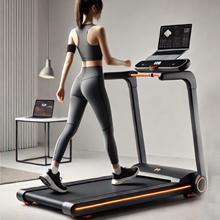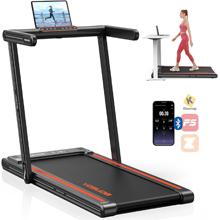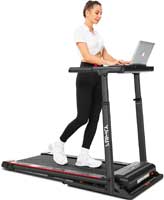Low-impact fitness equipment is a fantastic way to stay active without putting unnecessary strain on your joints. Among the many options available, walking treadmills stand out for their unique benefits. But how do they compare to other equipment like stationary bikes, ellipticals, or rowers? This guide breaks it all down with actionable insights and clear comparisons.
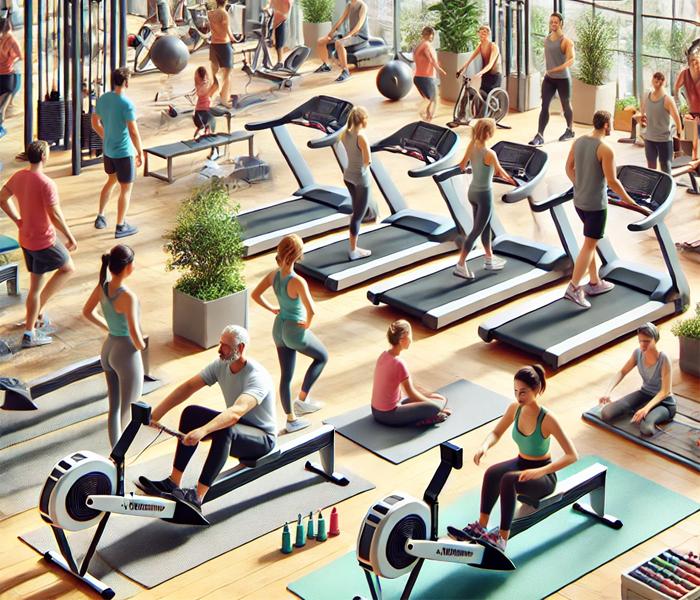
Why Choose Low-Impact Fitness Equipment?
Low-impact options are ideal for:
- Joint Health: Reduce stress on knees and hips.
- Accessibility: Suitable for beginners, seniors, and those recovering from injuries.
- Sustainability: Easier to maintain as part of a long-term routine.
Walking treadmills offer these benefits while fitting seamlessly into home offices or living spaces.
Checklist: What To Consider
When comparing walking treadmills to other low-impact fitness equipment, evaluate:
- Space Requirements:
- How much room do you have for the equipment?
- Ease Of Use:
- Is the device intuitive and simple to operate?
- Customization Options:
- Does it allow for speed, resistance, or incline adjustments?
- Impact Level:
- Does the equipment minimize strain on joints?
- Purpose:
- Are you looking for cardio, strength, or multitasking potential?
Step-By-Step: Comparing Equipment
1. Walking Treadmills
- Best For: Multitasking, maintaining steady activity during work.
- Features: Compact, adjustable speeds, quiet operation.
- Pros:
- Fits under a desk for work-exercise balance.
- Easy on joints with flat, shock-absorbing surfaces.
- Cons:
- Limited to walking speeds.
- Not ideal for intense workouts.
2. Stationary Bikes
- Best For: Seated cardio and leg strength.
- Features: Resistance levels, some models with built-in screens.
- Pros:
- Great for building leg muscles.
- Low impact on joints.
- Cons:
- Seated position may limit calorie burn compared to standing options.
- Bulky design can require dedicated space.
3. Ellipticals
- Best For: Full-body workouts with a fluid motion.
- Features: Adjustable resistance and incline.
- Pros:
- Combines upper and lower body engagement.
- Smooth motion minimizes impact.
- Cons:
- Larger footprint than walking treadmills.
- Requires balance and coordination.
4. Rowing Machines
- Best For: Full-body strength and cardio.
- Features: Resistance settings and foldable options.
- Pros:
- Targets multiple muscle groups.
- Low joint impact.
- Cons:
- Technique can take time to master.
- Not ideal for multitasking.
Specific Examples
- Scenario 1: Compact Apartment
- A walking treadmill fits easily under a desk, making it ideal for small spaces.
- Scenario 2: Full-Body Engagement
- An elliptical offers arm and leg movement, maximizing calorie burn.
- Scenario 3: Active Recovery
- Stationary bikes provide gentle exercise for those with knee injuries.
Pros And Cons Comparison
| Equipment | Pros | Cons |
|---|---|---|
| Walking Treadmill | Compact, multitasking-friendly | Limited to walking speeds |
| Stationary Bike | Excellent for leg strength, joint-friendly | Seated position limits calorie burn |
| Elliptical | Full-body workout, smooth motion | Requires more space and coordination |
| Rowing Machine | Targets multiple muscle groups | Steeper learning curve |
Tips For Choosing The Right Equipment
- Define Your Goals: Prioritize multitasking, cardio, or strength training.
- Measure Your Space: Ensure the equipment fits comfortably in your home.
- Test Before Buying: Visit a store to try out different options.
- Invest In Quality: Look for durable models with good reviews.
Conclusion
Walking treadmills are a versatile option for low-impact fitness, especially for those seeking to integrate activity into work. However, alternatives like stationary bikes, ellipticals, and rowing machines each offer unique benefits. By understanding your goals and needs, you can choose the best equipment to stay healthy and active.

